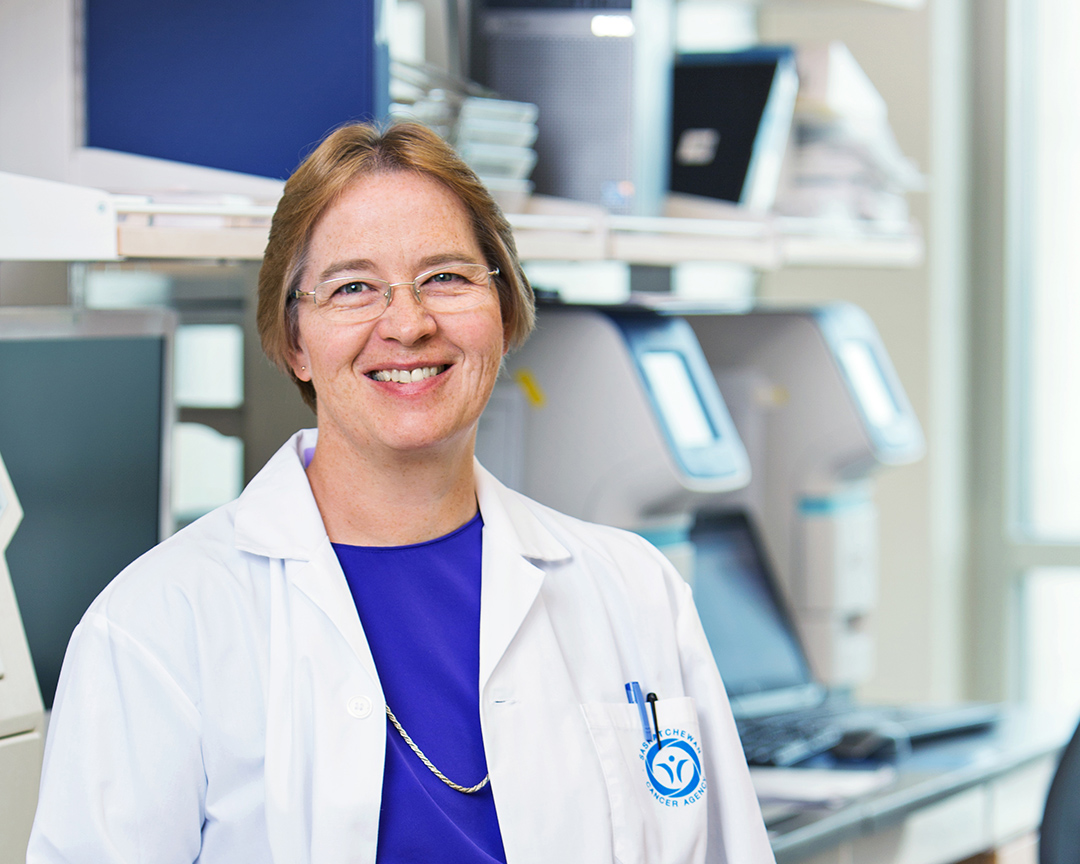
USask researchers seek to develop new breast cancer treatments
SASKATOON--Improving patient’s cancer treatments and minimizing side effects is the focus of new research at the University of Saskatchewan (USask) which aims to explore an innovative and potentially life-changing treatment targeting the most aggressive form of breast cancer.
Dr. Deborah Anderson (PhD), the director of research for the Saskatchewan Cancer Agency and a professor in USask’s College of Medicine, is working with other scientists at USask and across Canada to develop a new drug treatment for metastatic breast cancer.
Previous work done by Anderson and other cancer researchers identified a different marker, the CLIC3 protein, as a new area target for pharmaceuticals to target and battle triple-negative breast cancer.
The research conducted by Anderson and her team is working towards developing the first-ever drugs to target CLIC3. By focusing on the CLIC3 protein, Anderson said the hope is the new drug will prevent the cancer from growing and spreading.
“We have a lead compound and will work to modify it so that it binds tighter, is more effective at inhibiting the CLIC3 target ... and to make sure that not only is it a compound that inhibits the metastatic cell properties, but it’s also a good and safe drug for patients to take,” Anderson said.
Anderson said there are three major types of breast cancer, and chemotherapy is typically used to battle “triple-negative” breast cancer – one of the most aggressive and difficult to treat, as it does not possess any of the three common receptors targeted for drug or hormone treatments.
If Anderson and her team continue to have success developing this new treatment drug, they could give patients an option for fighting breast cancer that has far fewer side effects than chemotherapy.
“(Chemotherapy) is typically quite harsh for patients,” she said. “This would be more targeted, and potentially be given to patients early on to prevent new metastasis from happening. So, once you know you have cancer, it could be given to try to block the cancer cells from forming new metastasis.”
The goal for this potential new drug would be to provide an additive therapy that can be used alongside other treatment methods. The research is still in the early stages, but the potential for a chemotherapy alternative could be game-changing for breast cancer patients.
“I’m a fundamental researcher. This is the first time we’ve ventured into something that might make a change in a patient’s life,” she said. “That’s very exciting for anybody, that they think they might actually have a positive impact on healthcare, on the ability of patients to have better quality-of-life.”
Anderson credited the CIHR for funding this ongoing project, and also thanked the USask College of Medicine for providing support while looking for additional funding to support the project.
-30-
For more information, contact:
Daniel Hallen
USask Media Relations
daniel.hallen@usask.ca
306-966-6922
Article re-posted on .
View original article.

